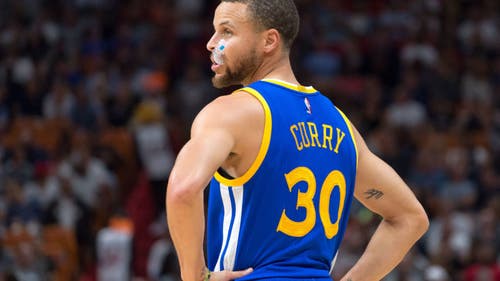
Distant Suns Rise: Part 1: Ownership
According to ESPN, the Phoenix Suns aren’t just a bad franchise, they’re the worst. Literally the worst. In this year’s ultimate standings, ESPN ranked the Suns as the worst franchise in the NBA; 120th out of 122 major sports franchises.
As fans, it is easy to get defensive about these rankings. I mean come on, we’ve got Devin Booker and a kid named Dragan, how bad can it possibly be?
Being honest with ourselves, the truth is obvious: The Suns, who have been among the most successful franchises in the league for almost five decades, are now in shambles. The influx of young players makes it easy to get excited about the future, but the truth is that no amount of new players can overcome the systemic dysfunction of the organization.
For the Suns to return to elite status, serious changes have to be made. Those changes require an honest self-assessment of every member of and every role in the organization. That includes a thorough evaluation of ownership, management, coaching, and players.
No one has invited us to tell the Suns how we would fix the franchise, but we are doing it anyway. We will explain why the Sarver needs to isolate himself, hire a controversial basketball mind, and bring back a familiar face.
Ownership
Mar 9, 2015; Phoenix, AZ, USA; Phoenix Suns owner Robert Sarver against the Golden State Warriors at US Airways Center. Mandatory Credit: Mark J. Rebilas-USA TODAY Sports
Accountability always starts at the top. If you’re even a casual Suns fan, you likely believe ownership is 95% of the current problem. Robert Sarver might be the most hated man in Arizona sports. But should he be? Well, let’s explore this as though we were an actual business consultant:
Any time a consultant comes into a business they start with defining the outcome. Why does the business exist? From there, the business plan more easily takes shape. When there is a clear and measurable outcome that defines the business, you can evaluate whether ownership provides the knowledge, skills, and resources needed to be successful and if the processes in place are effectively driving the outcome.
Vision/Outcome
In the case of the Suns, the outcome is clear: win an NBA championship. That must be the core of the team’s mission and vision.
To date, it’s hard to make the case that Robert Sarver shares that clear vision. That’s not just because that vision is not articulated in the Suns’ mission or vision statements, but it is because it is hard to see how Sarver’s actions relate to achieving that kind of vision. If he understands a championship vision, he certainly struggles with the knowledge and skills to clearly execute against it. Whether it was the decisions to forgo Joe Johnson and Amar’e Stoudemire’s contracts, the jettison of Shawn Marion, or the bizarre signings of Hedo Turkaglu and Josh Childress, it seems that the outcome Sarver is optimizing around is profit and competitiveness as opposed to winning.
Sarver appears to sign players who improve the team, but does so with the condition that they come at the right price regardless of their impact on a championship vision. His approach to basketball has appeared like an accountant seeking a financially profitable return on each player. This mentality would explain why he looked at Amar’e and decided that the risk to return ratio was too high. This is a great business mentality, but winning in sports requires a different mental model. Sports is binary. One team wins and everyone else loses. This is a zero sum reality that justifies a pool of individual investments that might seem unreasonable in isolation.
I believe most reasonable consultants would conclude that vision is not Sarver’s comparative advantage. He has a different mental model than the one you need to win in sports. As a result, a consultant would likely suggest that Sarver’s best role in the organization is as an investor. That means that vision and operations should be left to competent employees who can fill the knowledge and skills void that Sarver creates.
Resources
Dec 7, 2016; New York, NY, USA; Cleveland Cavaliers small forward LeBron James (23) and New York Knicks small forward Carmelo Anthony (7) fight for a rebound during the third quarter at Madison Square Garden. Mandatory Credit: Brad Penner-USA TODAY Sports
This is where Sarver gets an unfair reputation. He isn’t an elite NBA owner in terms of wealth, but he is worth at least $400 million. While this puts him at the lower end of NBA owners, it’s more than enough to meet the level of investment required for an NBA champion.
Sarver has struggled to correctly assess talent, but has always been willing to write big checks, even to attract sub-optimal talent. Marcus Banks is the prime example. In another, the bank was open to write big checks for LeBron and Melo. The issue is not and has never been a willingness to sign the checks. The issue has always been the decision-making about to whom the checks are written. This is why Sarver needs to wisely put himself in the investor box. Let a proven member of the management team tell him what it costs per year to keep the Suns on track to win a title and let Sarver decide to write the check or sell the team.
In my next post I will discuss the specific goals for management in planning for the future, and who should fill the void left by Lon Babby between ownership and the day-to-day management of the franchise.
More from Valley of the Suns
This article originally appeared on











